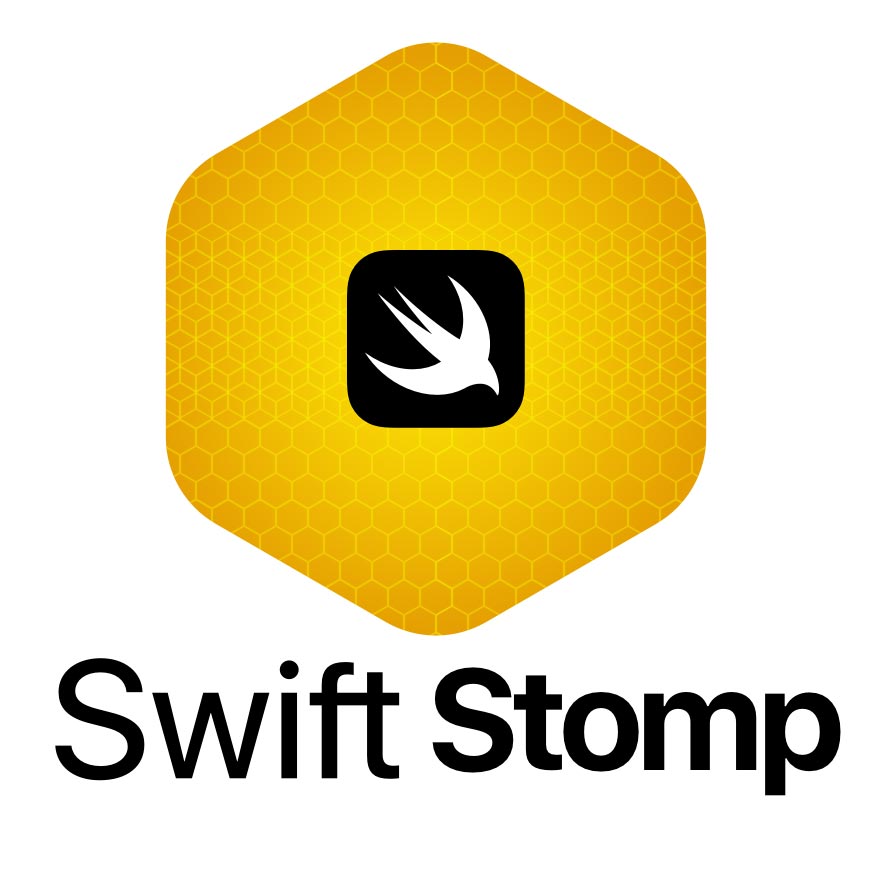| SwiftStomp |
|---|
 |
 |
- Easy to setup, Very light-weight
- Support all STOMP V1.2 frames. CONNECT, SUBSCRIBE, RECEIPT and ....
- Auto object serialize using native JSON
Encoder. - Send and receive
DataandText - Auto reconnect
- Logging
- Reactive programming ready.
Quick initialize with minimum requirements:
let url = URL(string: "ws://192.168.88.252:8081/socket")!
self.swiftStomp = SwiftStomp(host: url) //< Create instance
self.swiftStomp.delegate = self //< Set delegate
self.swiftStomp.autoReconnect = true //< Auto reconnect on error or cancel
self.swiftStomp.connect() //< ConnectImplement all delegate methods to handle all STOMP events!
func onConnect(swiftStomp : SwiftStomp, connectType : StompConnectType)
func onDisconnect(swiftStomp : SwiftStomp, disconnectType : StompDisconnectType)
func onMessageReceived(swiftStomp: SwiftStomp, message: Any?, messageId: String, destination: String, headers : [String : String])
func onReceipt(swiftStomp : SwiftStomp, receiptId : String)
func onError(swiftStomp : SwiftStomp, briefDescription : String, fullDescription : String?, receiptId : String?, type : StompErrorType)In the case that you are more comfort to use Combine publishers, instead of delegate, SwiftStomp can report all events, messages and receiptIds through upstreams. This functionality shines, especially, when you want to use SwiftStomp in the SwiftUI projects. Please check the example project, to see how we can use upstreams, in SwiftUI projects.
// ** Subscribe to events: [Connect/Disconnect/Errors]
swiftStomp.eventsUpstream
.receive(on: RunLoop.main)
.sink { event in
switch event {
case let .connected(type):
print("Connected with type: \(type)")
case .disconnected(_):
print("Disconnected with type: \(type)")
case let .error(error):
print("Error: \(error)")
}
}
.store(in: &subscriptions)
// ** Subscribe to messages: [Text/Data]
swiftStomp.messagesUpstream
.receive(on: RunLoop.main)
.sink { message in
switch message {
case let .text(message, messageId, destination, _):
print("\(Date().formatted()) [id: \(messageId), at: \(destination)]: \(message)\n")
case let .data(data, messageId, destination, _):
print("Data message with id `\(messageId)` and binary length `\(data.count)` received at destination `\(destination)`")
}
}
.store(in: &subscriptions)
// ** Subscribe to receipts: [Receipt IDs]
swiftStomp.receiptUpstream
.sink { receiptId in
print("SwiftStop: Receipt received: \(receiptId)")
}
.store(in: &subscriptions)Full Connect signature:
self.swiftStomp.connect(timeout: 5.0, acceptVersion: "1.1,1.2")If you want to reconnect after any un-expected disconnections, enable autoReconnect property.
self.swiftStomp.autoReconnect = trueNotice: If you disconnect manually using
disconnect()function, andautoReconnectis enable, socket will try to reconnect after disconnection. If this is not thing you want, please disableautoReconnectbefore call thedisconnect().
Full Subsribe signature. Please notice to subscribe only when you ensure connected to the STOMP. I suggest do it in the onConnect delegate with connectType == .toStomp
swiftStomp.subscribe(to: "/topic/greeting", mode: .clientIndividual)You have full controll for sending messages. Full signature is as follows:
swiftStomp.send(body: "This is message's text body", to: "/app/greeting", receiptId: "msg-\(Int.random(in: 0..<1000))", headers: [:])You can check the status of the SwiftStomp by using connectionStatus property:
switch self.swiftStomp.connectionStatus {
case .connecting:
print("Connecting to the server...")
case .socketConnected:
print("Scoket is connected but STOMP as sub-protocol is not connected yet.")
case .fullyConnected:
print("Both socket and STOMP is connected. Ready for messaging...")
case .socketDisconnected:
print("Socket is disconnected")
}You control for sending WebSocket 'Ping' messages. Full signature is as follows:
func ping(data: Data = Data(), completion: (() -> Void)? = nil)You will receive 'Pong' message as a response.
If you want to ensure your connection will still alive, you can use 'Auto Ping' feature. Full signature is as follows:
func enableAutoPing(pingInterval: TimeInterval = 10)The 'autoPing' feature, will send ping command to websocket server, after pingInterval time ellapsed from last sent sendFrame commands (ex: connect, ack, send ....).
Notice: Auto ping is disabled by default. So you have to enable it after you connected to the server. Also please consider, if you disconnect from the server or call
disconnect()explicitly, you must callenableAutoPing()again.
To disable the 'Auto Ping' functionality, use disableAutoPing().
This example was test with a Spring Boot websocket server with RabbitMQ as an external message broker.
Please refer to the Example for more functionalities
To run the example project, clone the repo, and run pod install from the Example directory first.
- iOS 13 or above, macOS 10.15 or above, tvOS 13 or above
SwiftStomp is available through CocoaPods. To install it, simply add the following line to your Podfile:
pod 'SwiftStomp'From Xcode 11, you can use Swift Package Manager to add SwiftStomp to your project.
- Select File > Swift Packages > Add Package Dependency. Enter
https://github.com/Romixery/SwiftStomp.gitin the "Choose Package Repository" dialog. - In the next page, specify the version resolving rule as "Up to Next Major" with "1.0.4" as its earliest version.
- After Xcode checking out the source and resolving the version, you can choose the "SwiftStomp" library and add it to your app target.
Ahmad Daneshvar, [email protected]
Very special thanks to: @stuartcamerondeakin, @hunble, @aszter
SwiftStomp is available under the MIT license. See the LICENSE file for more info.


